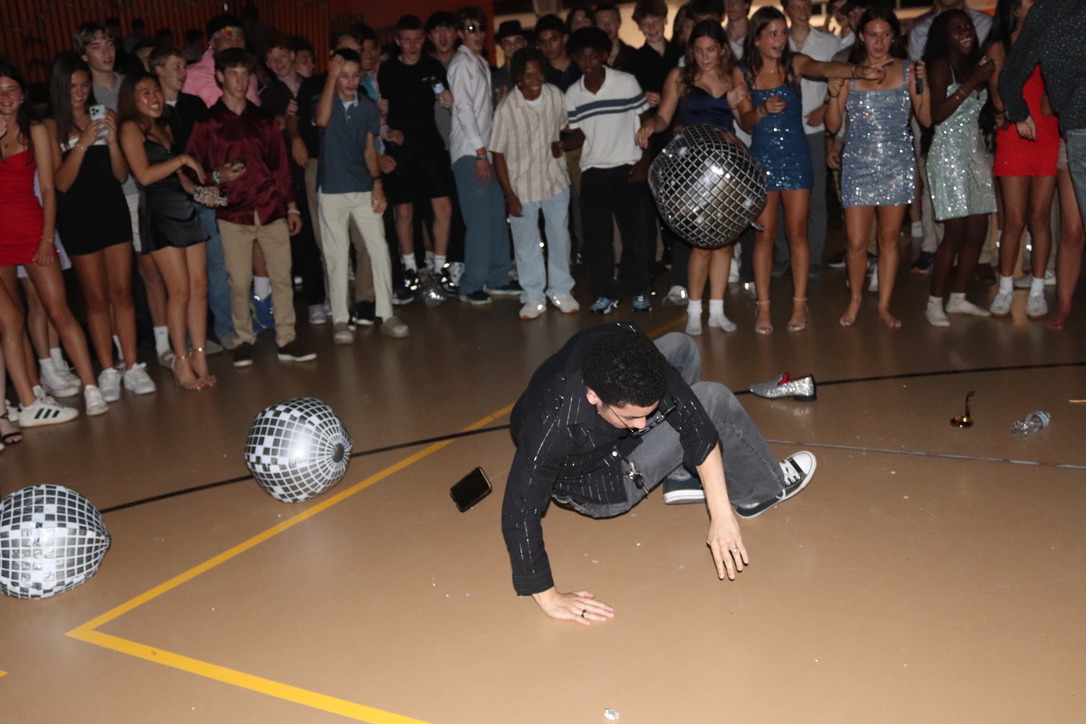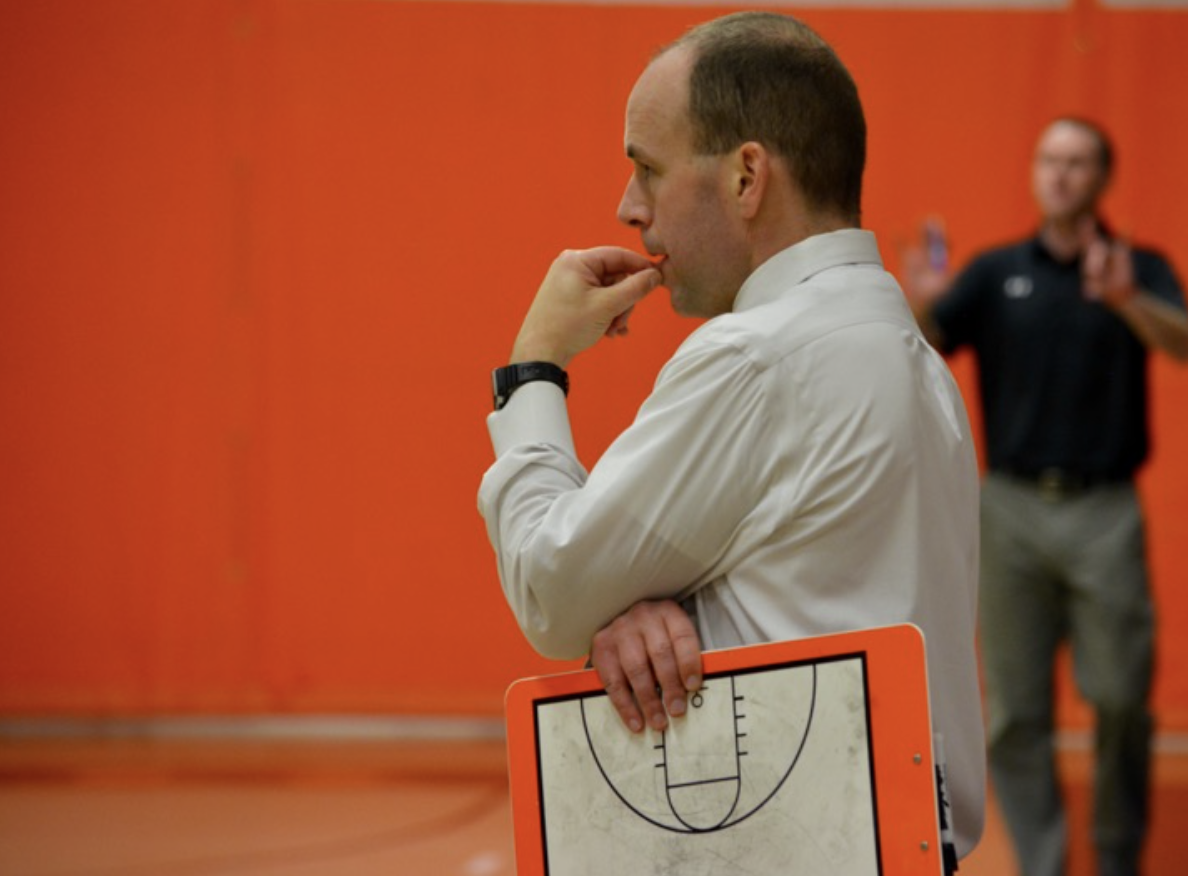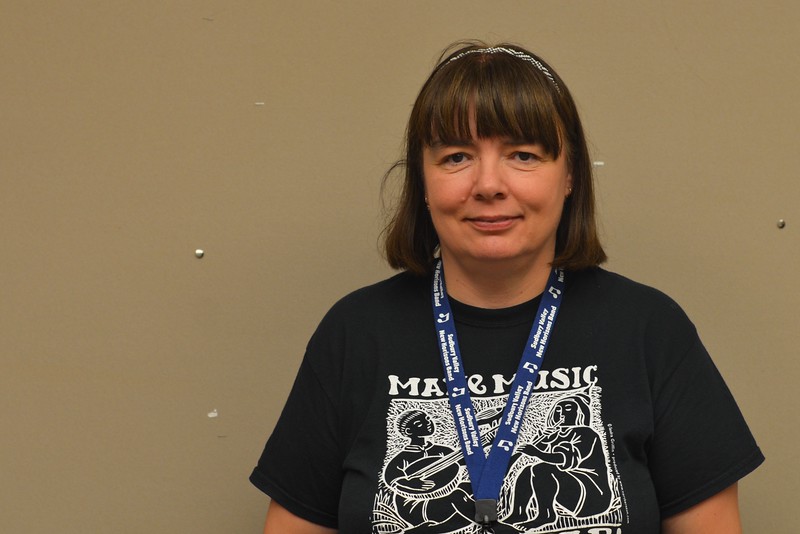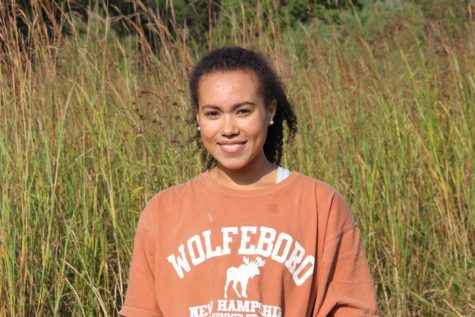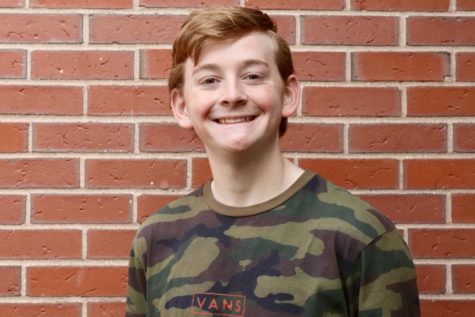Teachers from around the world: math teacher Hannah Marton
Credit: DAVID LIN
Pictured above is math teacher Hannah Marton, who immigrated to the United States from Hungary. “My mother in law always talks about how happy people are in general, and how they find fulfillment in other things they do besides just work,” Marton said. “She always said ‘the Americans know how to live.’”
December 7, 2016
Hannah Marton smiles down at a picture of a dark-haired girl in a school uniform. For Marton, this picture comes with memories of school in Hungary, memories very different from those that WHS students will graduate with.
Marton, a math teacher at WHS, had a very different high school experience than then the students at Wayland. She views Hungary and the U.S. as very different when it comes to everything from school to politics.
Marton and her husband first came to the U.S. as part of an education program. The program offered fellowships for people from former socialist countries to study abroad for a year. Marton’s husband studied at Rutgers University for a year and then got a full fellowship at Brown University. Once they moved to Providence, the couple knew they were going to stay in the U.S.
According to Marton, the schools in Hungary are very different from the schools she has taught at in the U.S.
“[The] relationship between teachers and students is a major difference, and I love how close kids are to teachers in America,” Marton said.
When she first came to the country, the way students interacted with teachers shocked Marton. She was used to a much more formal interaction and was surprised to see how close students were to teachers. Extra help was nonexistent when she went to school, but she is happy it is something that WHS students have access to.
When Marton went to school in Hungary, it was only mandatory up to age 14. After that, a third of students went to college preparatory high school, a third went to vocational high school (a school where students specialize in a trade, but graduates receive a high school diploma), and the rest either went to vocational school or straight into the workforce. Because of this, college preparatory high school in Hungary contains only the top 30% of students.
Marton’s acceptance into high school was unusual. She knew very little about the process, and only applied to one school. The school was the second best in the country, and she was originally rejected. Her letter sat in a huge stack or rejections which her biology teacher looked through out of curiosity. The teacher was appalled to see the rejection of a good student with a glowing recommendation who came from a tough home life.
“There was a lot of nepotism and really I was incredibly lucky,” Marton said. “My biology teacher said ‘If the only way to get into this school is to have somebody support you, then write on this that I support [Marton]’.”
Marton graduated at the top of her class.
“I always pull my hair when Europeans compare their high school to American high schools and say ‘We are so much better,’ like excuse me, you took only the top 30 percent. It’s just not a fair comparison,” Marton said.
Teaching has always been Marton’s dream. She taught in Hungary and continued to teach once she moved to the U.S. According to Marton, finding a job in the U.S. was difficult because of her foreign degree. She worked in Martha’s Vineyard for 6 years. When it came time to move she applied only to Wayland and one other school.
“When I was little I took my dolls and my teddy bears and played school and I never stopped playing school, I’m still playing school,” Marton said.
Today, Marton and her husband are continually grateful they are able to live in the U.S. Marton sees the people around her take joy in the little things every day.
“My mother-in-law always talks about how happy people are in general, and how they find fulfillment in other things they do besides just work,” Marton said. “She always said ‘the Americans know how to live.’”

![During the WHS club fair, senior Molly Bergeron is watching a student sign up for her club, Eliza J. Norton Foundation. In this club, students meet every week and come up with ideas to spread the message. "[This club] really touches a lot of people in the town," Bergeron said.](https://waylandstudentpress.com/wp-content/uploads/2025/10/IMG_1335-1200x800.jpg)



